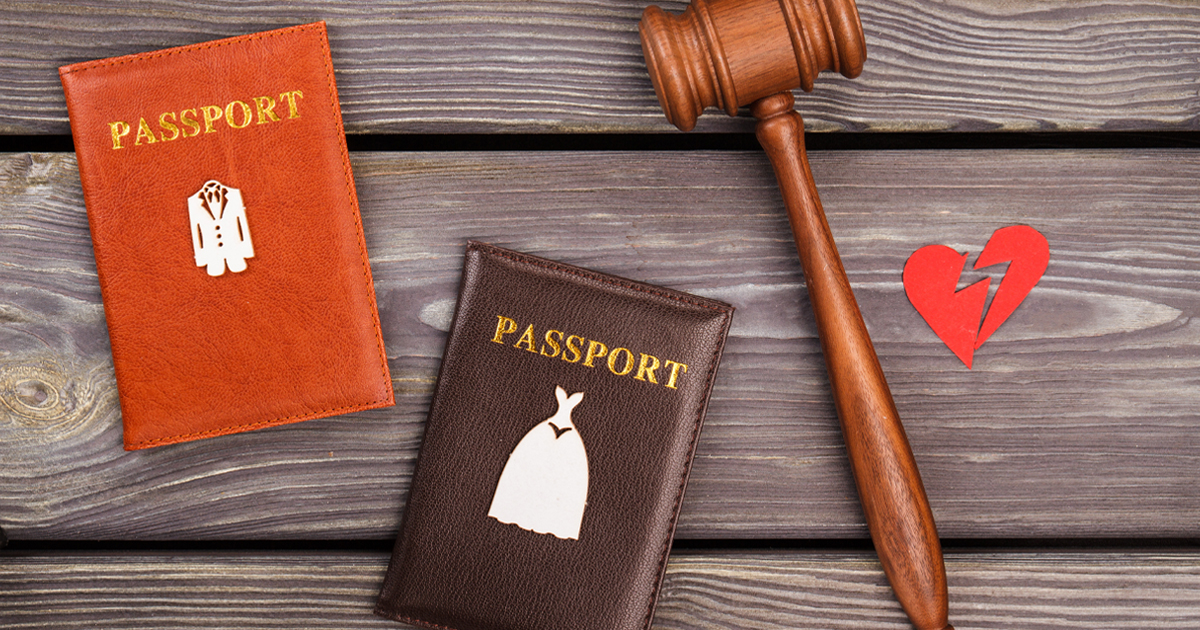In international child custody matters the child’s “habitual residence” is critical in determining whether a child has been wrongfully removed to or remains in another country. In this article, we examine the application of the Hague Convention in international child custody disputes.
International Child Custody and Care & Control Order
As defined in the Women’s Charter, a ‘child’ of marriage is a child who is under 21 years of age. Custody refers to the parent who makes the major decisions for a child, such as the child’s health, religion, health, and education issues. The parent given care and control of the child is usually the primary caregiver responsible for the child’s day-to-day life. Access to the child is granted to the other parent who is not given care and control.
Read more: International Divorce: What About the Children?
Child Custody
If you and your spouse wish to live in different countries following your divorce in Singapore, issues will have to be addressed about where and with whom the children will live, as well as arrangements put into place for contact between the children and their ‘non-resident’ parent.
There are four different types of custody orders that the courts may grant:
Sole custody order: The custodial parent may make major decisions for the child without the other parent’s agreement.
However, note that sole custody is rare and granted only in exceptional cases where joint parental custody would significantly impede decision-making or where joint parental custody is not in the child’s best interests. In most cases in Singapore, it is the norm for the Courts to grant parents joint custody.
Ultimately, the type of custody order is based on the facts and circumstances of the case.
Joint custody order: Both parents must make significant decisions about the child jointly, i.e., both parties must agree upon decisions. Either parent can apply to the Court for a resolution if there is no agreement.
Joint custody is the most common order courts make to promote the idea of shared parental responsibility. Additionally, joint custody encourages the parent who does not live with the child to continue his or her responsibilities to the child as the child’s parent.
Hybrid order: This is a sole custody order, but it includes an order that the custodial parent must consult with (or even obtain the consent of) the non-custodial parent when making decisions about some issues, such as school choice, subject choice, and so forth.
Split custody order: This is when custody of one or more siblings is awarded to one parent and custody of the other siblings is awarded to the other parent. As a general rule, siblings should be under the care of the same parent. If split custody is requested, parents must file affidavits to justify split custody and explain why it is in the children’s best interest.
Based on the first principles, in any case where custody is in dispute, the child’s best interests are the overriding consideration when courts decide what type of custody order to grant.
Read more: Understanding Child Custody in Singapore
Care and Control of the Child
Care and control is different from the issue of custody. Care and control deals with which parent the child lives with on a daily basis.
The parent awarded care and control is responsible for the child’s day-to-day activities (e.g., daily necessities, meal and bedtimes).
Care and control can be either shared or sole. Where there is shared care and control, the time spent with the child will be split between the parents equally (i.e., the 2 homes).
However, this depends on whether the arrangement is workable and if it is in the child’s best interests. Generally, shared care and control is unlikely to be granted if it disrupts the child’s schedule, given the inconvenience of travelling between 2 homes frequently.
Shared care and control is also usually granted if the parents’ relationship is cordial and they can communicate effectively.
The following is a non-exhaustive list of factors that courts will consider in deciding the issue of care and control:
- Who has been the primary caregiver of the child?
- A child’s attachment and comfort level, whether moving back and forth between parents’ homes, disrupts the child’s routine and life.
- The child’s age – are they at an age where they can make independent decisions about who to live with?
- Who the proposed caregivers are (e.g., grandparents, friends of the parents to whom care and control is delegated), and how close they are to the children.
- If one parent alienates or makes access difficult for the other parent.
Ultimately, the paramount consideration is the child’s welfare in making an order for care and control.
Child Access & Overseas Access
Child Access
The parent who does not have care and control of the child is entitled to have access to the child. The starting point is a presumption that such access would benefit the child. The issue is then the quantum of access.
Some examples of access arrangements can include the following:
- Flexible and liberal access; or
- Stipulated days/times such as:
- Weekday access: This is usually mid-week for a few hours and is typically subject to the child’s school schedule or other activities, e.g., tuition.
- Weekend access: This may include overnight access and should consider the child’s school schedule and other activities.
- Public holiday access: Parties often come to an arrangement where each parent spends alternate public holidays with the child. Parties can modify this arrangement the following year.
- School holiday access
- Other special occasions such as birthdays
Access orders are generally unsupervised, i.e., the parent can spend time with the child without any third party monitoring the access. However, the Court may order supervised access in the interest of the child’s safety and relationship with the other parent, which depends on the facts and circumstances of the case.
Overseas Access
If the parent with access lives abroad, the non-custodial parent is still entitled to access the child through remote access or ad-hoc access when the parent returns to visit Singapore. You can even travel abroad with your child depending on the orders made.
Again, this is left to the discretion of the Court and depends on the particular circumstances of your case.
Read more: Custody, Care & Control, and The Welfare Principle of a Child
Relocation
After a divorce, you may want to return your child to your home country. However, the move may mean your child can no longer spend time with the other parent because of contact schedules. Therefore, you must obtain the other parent’s consent to move abroad with your child. Where there is no consent, an application to Court must be filed.
The following are some factors the Court will consider in granting a request to relocate with your child:
- Whether the relocation is permanent or for a short term
- Remarriage of the relocating parent
- Family support and grandparents abroad
- Child’s education
- The loss of relationship with the other parent
- Enlistment for national service in Singapore
Child Abduction FAQ’s – What is the Hague Convention
Can I Move Out of the Country Without a Child Custody, Care and Control Agreement?
As mentioned above, the other parent or Court has to grant permission, failing which, you may be committing child abduction. Child Abduction will often require immediate action in multiple jurisdictions. In the event of child abduction, we can assist the left-behind parent as follows:
- Analyse whether the case should be brought under the Hague Convention on the Civil Aspects of International Child Abduction (Hague Convention);
- Prepare and file the Hague Convention application as to the petitioner’s custody rights under Singapore law;
- Coordinate with the Central Authority of Singapore and corresponding Embassies;
- Assist our client in retaining local counsel in a foreign jurisdiction;
- Determine the possibility of instituting civil proceedings against the abductor and coordinate appropriate action if the abductor flees to a third jurisdiction;
- Coordinate the institution of measures to cause the foreign state’s authorities to enforce its Court’s return order; and
- Determine and help implement alternative strategies in the case of abductions to countries that are not parties to the Hague Convention.
If your child has been taken abroad, our matrimonial lawyers can offer advice and information and help find a lawyer in another country’s jurisdiction.
Read more: Ways to Prevent a Spouse From Removing a Child From Singapore.
What if my Spouse “kidnaps” our child to another country?
You can request assistance from the Central Authority of Singapore (CAS) if your spouse and child have departed without your knowledge or consent.
However, CAS cannot assist if legal proceedings are ongoing or Singapore does not have a contracting relationship with that country (62 countries have a contracting relationship with Singapore) under the Hague Convention on Civil Aspects of International Child Abduction.
If CAS refuses to accept your application, or is not able to facilitate the return of your child, then you are at liberty to make an application to the Family Justice Courts under the International Child Abduction Act (Cap 143C (“ICAA”)).
Can I apply under the Convention?
Yes, you can apply under the ICAA if:
- Your child is under 16 years old; and
- Your child was habitually resident in a Contracting State immediately before any breach of custody or access rights.
How do I determine the habitual residence of my child?
The test for determining habitual residence is highlighted in the case of TUC v TUD [2017] SGHCF 12 at [55]. It requires the Court to look at a range of factors, such as:
- The degree to which the child is settled or integrated into a country, and
- The parents’ intention as to whether the child is to reside in that country.
What do I do after obtaining an Order of Court in Singapore for my child’s return?
You must forward a copy of the Order of Court to the CAS within seven (7) days of the order grant.
How likely is it for an application for international travel to succeed?
Factors indicating such a tendency include whether the parent has previously abducted the child, attempted to do so, or engaged in activities that indicate planned abduction (e.g., selling residential property or resigning from employment). A highly relevant factor, while not dispositive, is whether or not the country has signed the Hague Convention. It is advisable to consult an experienced international divorce lawyer depending on the context of your case.
Can my child/children refuse to return after international travel?
According to Article 13 of the Hague Abduction Convention, a child does not have to return if they object and have reached the age and maturity level where their opinions are appropriate to be considered. Therefore, when the child is old enough, they may successfully resist returning if the taking parent creates attractive conditions in the new country or instils fear of returning.
Read More: Additional Hague Convention FAQ`s
Legal Representation
In conclusion, international divorce with children in Singapore can be formidable. Our International Divorce Lawyers can advise you on foreign child custody, care and control, and access laws in Singapore.
For advice on complex laws concerning foreign child custody, care and control, and access laws in Singapore, consult an International divorce lawyer.
GJC Law credits our Vice-Head of Family & Matrimonial Law Practice, Sara Aziz, for her guidance.






